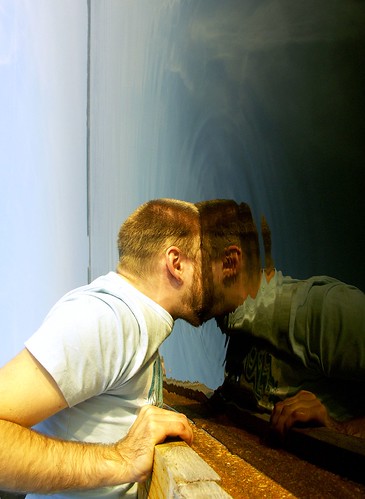 Burton, D., & Bartlett, S. (2005). Defining educational research. In Practitioner research for teachers (pp. 13-33). London: Paul Chapman Publishing.
Burton, D., & Bartlett, S. (2005). Defining educational research. In Practitioner research for teachers (pp. 13-33). London: Paul Chapman Publishing.Cochran-Smith, M., & Lytle, S. L. (1998). Teacher research: The question that persists. International Journal of Leadership in Education, 1(1), 19-36.
Denzin, N. K., & Lincoln, Y. S. (2000). Introduction. The discipline and practice of qualitative research. In N. K Denzin, & Y. S Lincoln (Eds.). Handbook of Qualitative Research, (2nd Ed) (pp.1-28). New York: Sage.
Guba, E. C. (1990). The alternative paradigm dialog. In E. C. Guba (Ed.). The paradigm dialog, (pp. 17-27). New York: Sage.
Jungck, S. (1996). Teacher inquiry in the traditions of social science research: “is it real?” In G. Burnaford, J.Fischer & D. Hobson (Eds.), Teachers doing research (pp. 165-179).
Zeichner, K. M., & Noffke, S. E. (2001). Practitioner research. In V. Richardson (Ed.), Handbook of research on teaching (4th ed., pp. 298-330). Washington D. C.: American Educational Research Association.
Is Teacher Research ‘real’ research? Jungck argues that teacher research “honors their keen observational skills, their inclination (indeed obligation) to influence their own environment with an aim toward improving it, and their skill at developing, modifying, and observing simultaneously, on-the-spot! The model [action research] systematizes what good teachers tend to do naturally.” (1996 p 176)
Anderson (1998:6) quoted in Burton and Bartlett (2005) states “Research in education is a disciplined attempt to address or solve problems through the collection and analysis of primary data for the purpose of description, explanation generalization and prediction.’ Burton and Bartlett describe research as planned, cautious, systematic, reliable and that rigor is paramount. Research is about finding out and understanding phenomena. It is used for different purposes: to persuade, to state a viewpoint and political purposes. Denzin and Lincoln (2000) add “qualitative research is a situated activity that locates the observer in the world.” (p3)
The Burton and Bartlett (2005) article was a practical ‘how to’ guide for research and outlined what qualitative research is. The article by Denzin and Lincoln (2000), provided a look at qualitative research with a critical eye and presented this in an interesting narrative format. This article made me marvel at the richness, depth and breadth of qualitative research, the ‘why’ and not just the ‘what’. The discussion on qualitative research as being a montage or a bricolage was appealing. As was the quote in Jungck (1996 p 174) by Clandinin and Connelly (1994 p 417) that teachers tend to be “simultaneously focused in four directions: inward, outward, backward and forward” when doing research.
“Qualitative research is endlessly creative and interpretive… Interpretations are constructed… as a working interpretive document that contains the writer’s initial attempts to make sense of what he or she has learned” (Denzin and Lincoln,2000 p23).
The thought of research as a creative montage and not just a logical, linear, scientific activity is engaging. The discussion on ‘triangulation’ was equally as enlightening. “Triangulation is not a tool or strategy of validation, but an alternative to validation” (Flick, 1998, p.230, in Denzin and Lincoln, p 5). For the first time I saw that gathering data using many different methods was a way to experience the breadth, width and richness of the phenomenon being studied. You cannot capture the reality of the phenomenon, only a representation of it.
These readings engage in discussion of paradigms, what Guba (1990 p 17) defines as “a basic set of beliefs that guides action”. Guba concurs with Denzin and Lincoln (2000) that the researcher cannot be objective, but is an integral part of the research, and therefore needs to state the paradigm of the researcher. Guba (1990) gives a succinct overview of the various types of paradigms. I am leaning towards a constructivist paradigm at this moment.
In the article by Cochran Smith and Lytle (1998) a list of questions are generated around teacher research. Notable is the discussion that “the growth of the teacher research movement hinges on a paradox: as it is used in the service of more and more agendas and even institutionalized in certain contexts, it is in danger of becoming anything and everything” (p21). This is reflected in rigid performance management systems that do not take into account the needs of a teacher or their classroom.
In conclusion, my overall feelings when these articles fall into one tangled heap after reading them in a two week period, is that teacher research is an important part of being a classroom practitioner. It is a rich area of inquiry. Researchers cannot be situated outside the research object, they bring with them their bias, knowledge, beliefs and politics. There are many different paradigms of qualitative research, the researcher needs to state the paradigm they favour, and research always serves an interest. I personally feel that teacher research is important, needs to be valued by being allocated the necessary time, but that it also needs to be supported by established research.
(This highlights the importance of the Efellowship programme provided by the Ministry of Education in New Zealand!)
Image by (Creative Commons License: Attribution) http://www.flickr.com/photos/40361413@N00/16722536
Blogged with Flock




2 comments:
I would like to do some action research but don't know where to start. Do you know of an on-line read that would point me in the right direction but is not too heavy as it is holidays????
AllanahK
Hi Allanah
There are links to two good readings on my ICTPD Cluster site:
http://centre4.interact.ac.nz/modules/folder/folder.php?space_key=370&module_key=27351&link_key=27227&group_key=0
The one by Caroline Stuart is particularly good as it is short, easy to read and situates action research in teacher's own professional development for performance appraisal. The other article is a step by step guide and well worth a look.
Hope this helps
Post a Comment